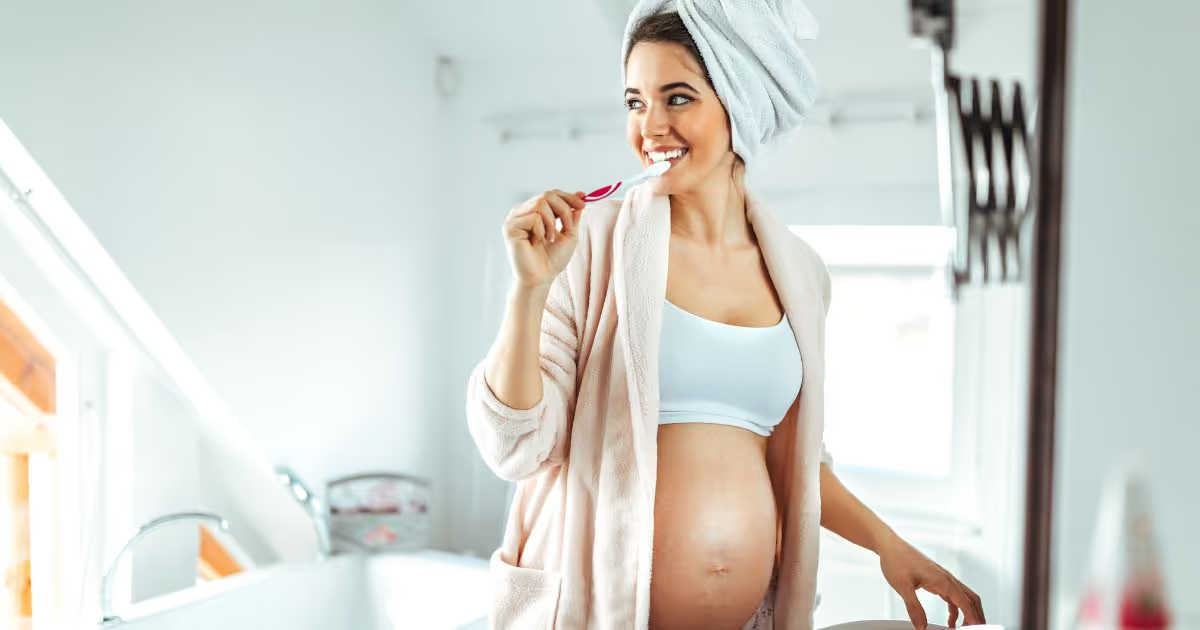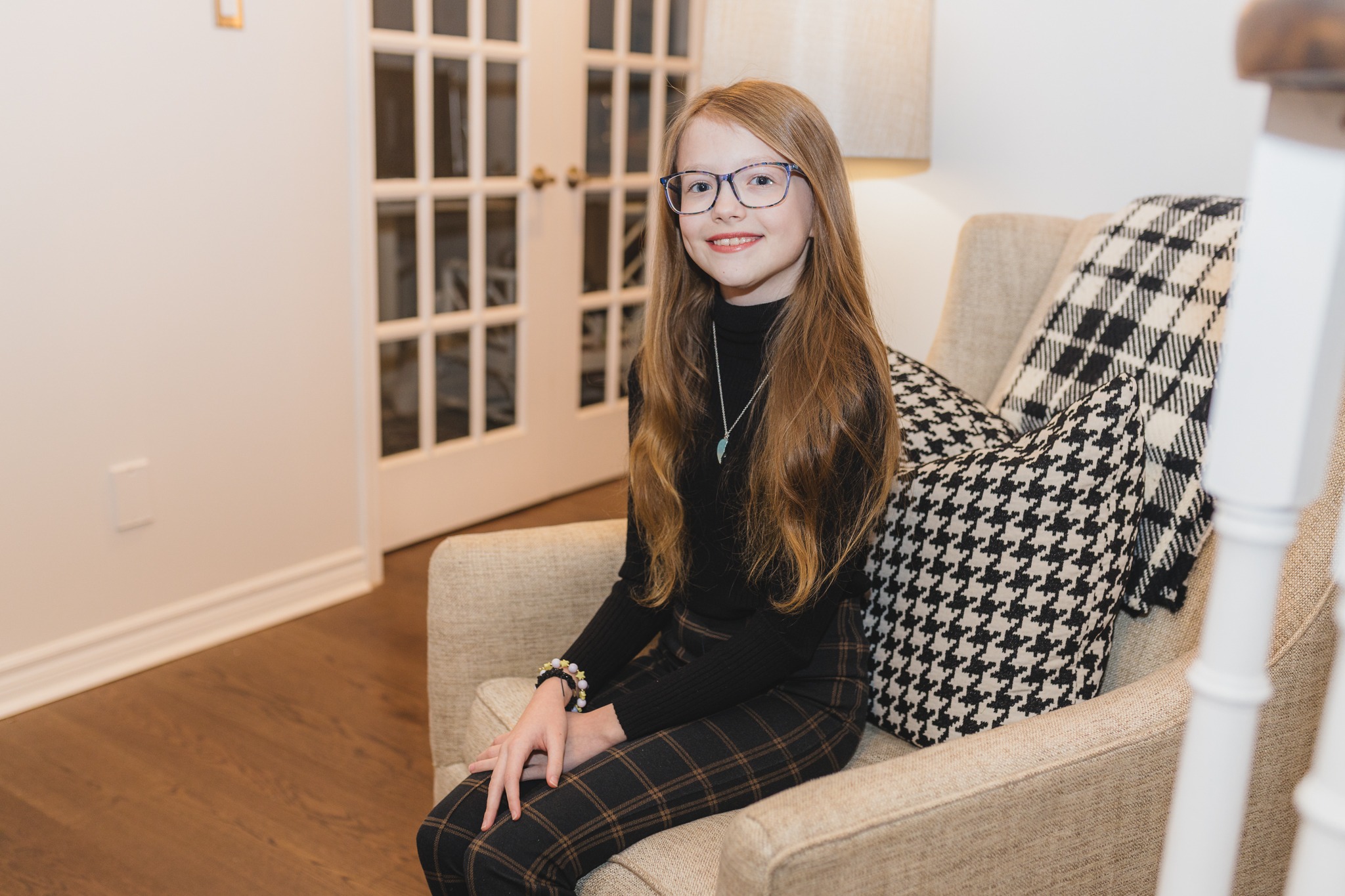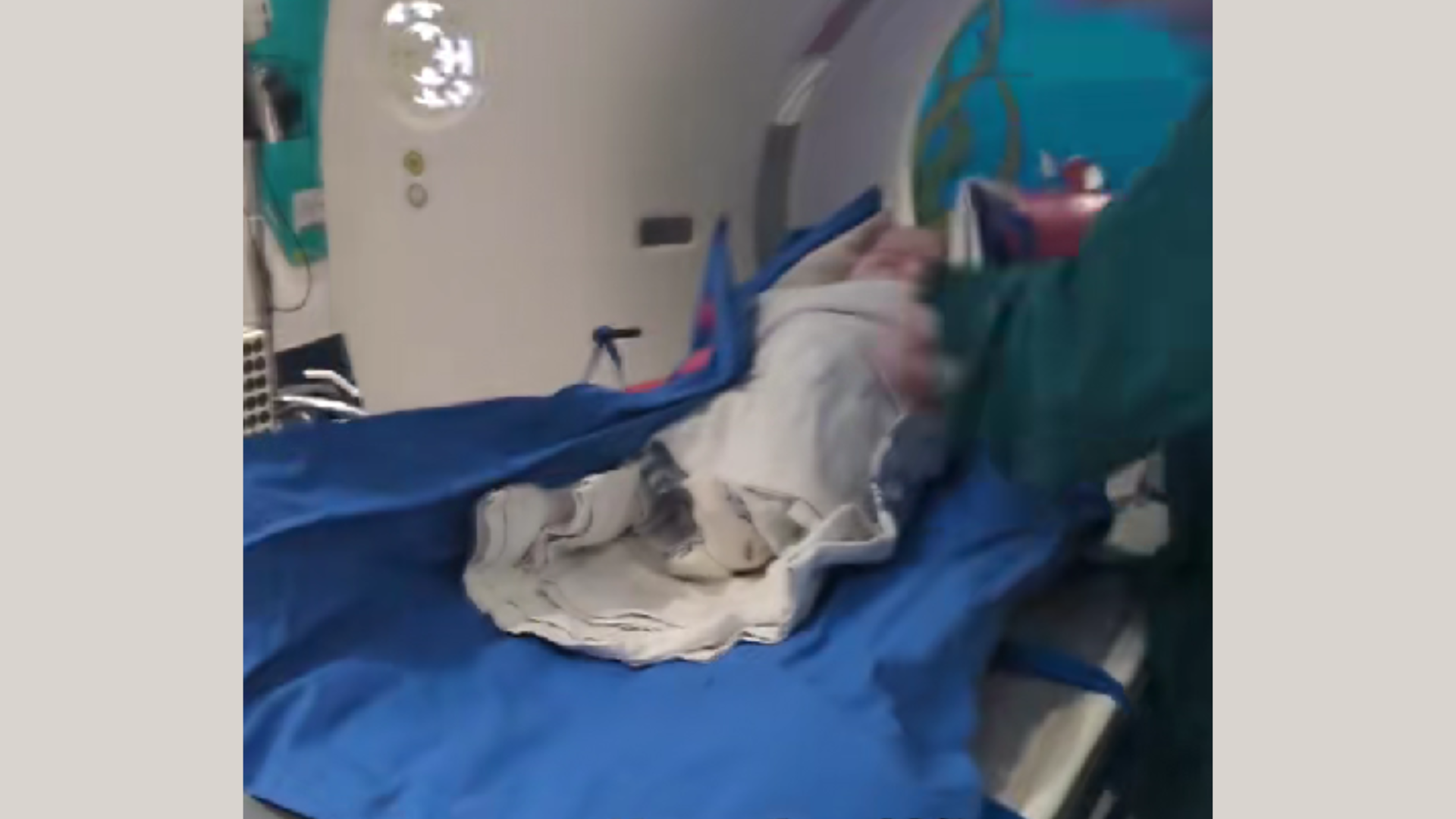Baby Teeth Care Guide: First brush, toothpaste and dentist visits

So often with new babies there’s a big focus on developmental milestones, feeding and of course sleep, but new parents are often left in the dark about teeth care for their bubs.
For Dental Health Week (August 5-11), the Australian Dental Association (ADA) has shared some advise for parents who are navigating the new world of baby teeth.
According to the ADA there are some alarming stats around children’s oral care. Research has found 34 per cent kids aged five to six have had tooth decay in their primary teeth, 70 per cent kids aged nine to 13 consume too much sugar, and 27 per cent children aged five to 10 have untreated tooth decay.
READ MORE: Jordan royals share first family photos of baby girl

The lack of infant oral healthcare information may contribute to these stats – so what are the oral healthcare basics for babies and toddlers?
ADA’s Oral Health Promoter and dentist Dr Mikaela Chinotti has shared some tips and cleared up some questions for new parents.
READ MORE: Olympian proposes to boyfriend after record-breaking race
When should you start brushing your baby’s teeth?
Before babies get their teeth, parents may choose to wipe their gums with a clean, damp muslin cloth to remove food particles once they start solids. Once the first tooth arrives, start using a soft bristled toothbrush and water to brush with, not toothpaste.
“Toothpaste doesn’t need to be introduced until 18 months, unless otherwise advised by your dentist,” Dr Mikaela Chinotti said.
“At this age, start using a fluoride containing children’s toothpaste. It is formulated differently to adult toothpastes so check the label. The fluoride ingredient is important as it helps to strengthen and protect the teeth from tooth decay.
“After brushing, your infant or child should spit out the excess toothpaste, but they don’t need to rinse the mouth with water. Children are likely to swallow more toothpaste by rinsing than by just spitting out.”
READ MORE: Reality star makes raw admission about her relationship after having kids

How long do you need to brush baby teeth for?
For parents finding the whole brushing routine fraught, there are numerous phone apps that have songs to help your little one to brush for the recommended two-minute length of time. Alternatively, play a song your child likes for the two-minute period.
For babies with only a few teeth, however, this two-minute routine isn’t necessary at this stage and of course you’ll need to do the brushing yourself. In fact, children don’t typically have the manual dexterity to brush their own teeth adequately until they are around nine or have their pen license from school.
In addition to brushing, flossing should start from when your baby has two teeth that touch together side by side, often around the age of two. Your dentist can show you how to floss and most recommend flossettes for little mouths.
READ MORE: Influencer’s powerful message about not ‘bouncing back’ after having a baby

When should you take your baby to the dentist for the first time?
Your baby’s first dental visit should ideally be when their first tooth arrives or by age one, whichever comes first. And it’s best that this first visit is not due to tooth pain, as this may cause anxiety at future dental visits.

Mum shares daughter’s hilarious request for the tooth fairy
For the first few appointments some parents find putting their little one on their lap as the most comfortable and calming solution for everyone.
At these early dental appointments, the dentist will investigate your child’s mouth to examine the teeth and advise the parent or carer on oral hygiene techniques, and provide information on a tooth-friendly diet.
The information in this article is general in nature. Please consult with your GP, dentist, specialist or other healthcare professional for advice which is specific to your health needs.
FOLLOW US ON WHATSAPP HERE: Stay across all the latest in celebrity, lifestyle and opinion via our WhatsApp channel. No comments, no algorithm and nobody can see your private details.
link




:max_bytes(150000):strip_icc()/asian-sick-little-girl-lying-in-bed-with-a-high-fever-952683074-5b5b784046e0fb005027ca13.jpg)


